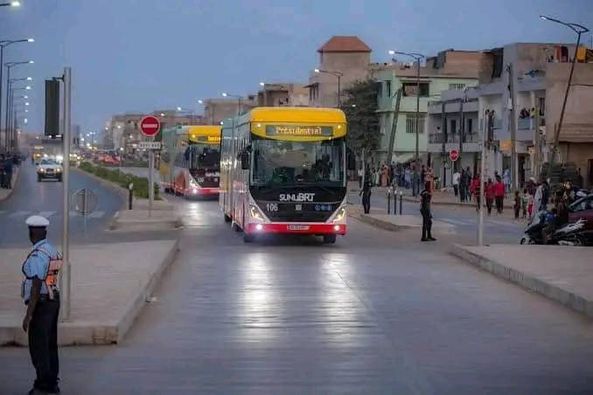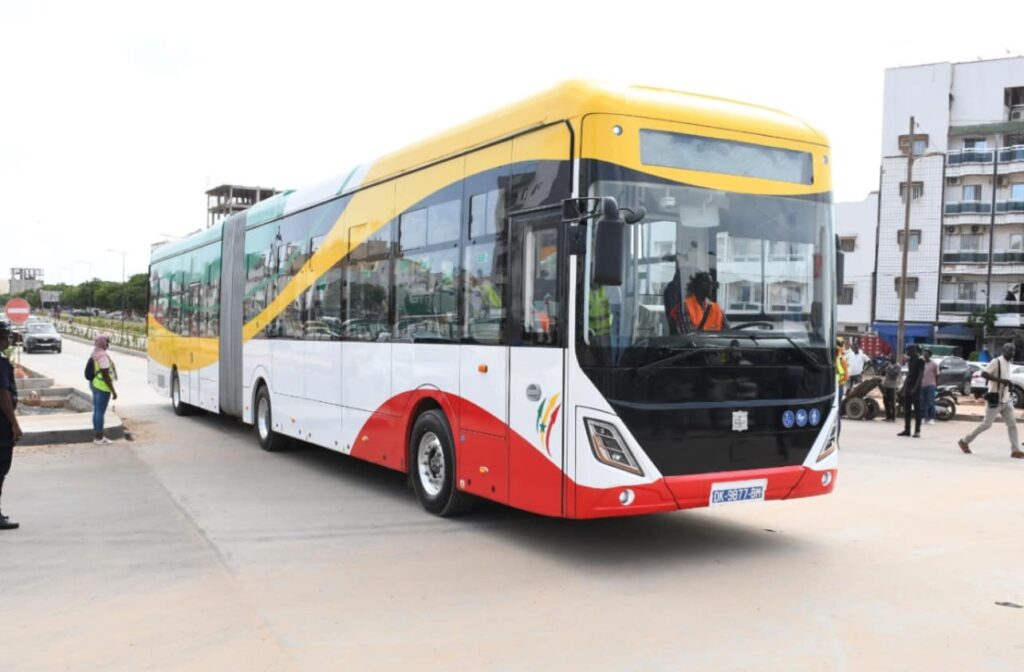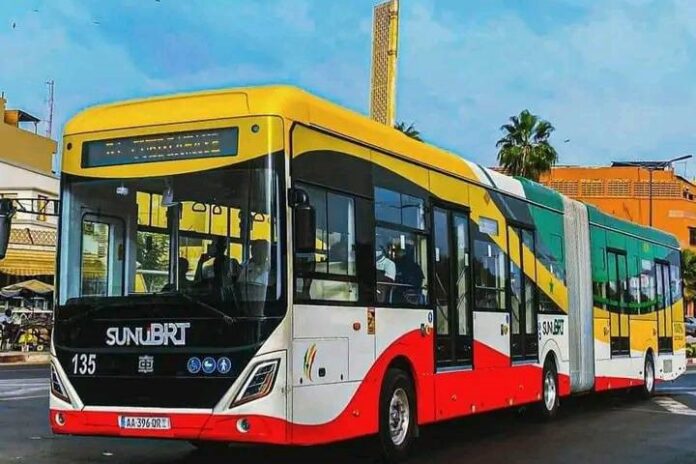Dakar, the capital of Senegal, has launched the first electric Bus Rapid Transit (BRT) network in Sub-Saharan Africa, marking a significant step forward in sustainable urban transport. This innovative project spans 18.3 kilometers and includes 23 stations and 3 major hubs, all powered by a fleet of 120 solar-powered electric buses. The new network is expected to transport approximately 300,000 passengers daily, transforming urban mobility in the region.
The introduction of the BRT network brings many benefits to Dakar. With its large-capacity buses, each seating around 150 passengers, the system will help ease the city’s notorious traffic congestion. Residents hope the BRT will provide a quicker and more efficient way to travel between the city centre and the suburbs, improving access to jobs, education, and other essential services.

President Bassirou of Senegal highlighted the importance of this achievement: “We did it with the regional trains; now the BRT reinforces our commitment to the new era of mass transportation, which solves today’s problems and anticipates those of tomorrow.”
Connecting 14 communes from the north to the south of Dakar, the BRT network aims to create a seamless travel experience. It also represents a significant push towards a greener future, with the electric buses contributing to reduced air pollution and a smaller carbon footprint.

The Electric Bus project has also created over 1,000 new jobs and is expected to have a substantial social impact on the local community. Financed by the World Bank, the European Investment Bank, and the State of Senegal, the project cost approximately 300 billion CFA francs (about 500 million US dollars).
Senegal’s new electric BRT network not only showcases the country’s commitment to innovation and sustainable development but also sets an example for other cities in Sub-Saharan Africa. As the first of its kind in the region, this network could inspire similar projects across the continent, contributing to a cleaner and more efficient future for urban transport.




